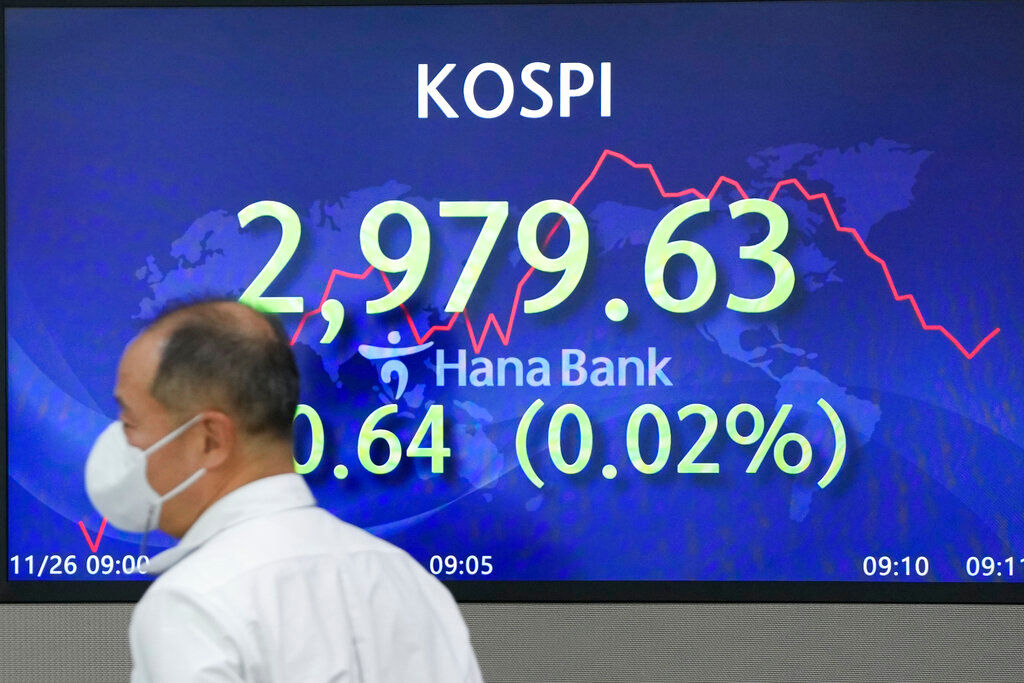Asian stock markets sank Friday after some European countries tightened curbs on travel and business following a surge in coronavirus infections and South Africa reported a new variant.
Shanghai, Tokyo, Hong Kong and Sydney declined. U.S. markets were closed Thursday for a holiday.
Austria imposed a nationwide 10-day lockdown after its daily virus deaths tripled, while Italy imposed curbs on activity by unvaccinated people. The U.S. government advised Americans to avoid Germany and Denmark. Scientists in South Africa said a new variant was spreading among young people in its most populous province.
Also Read | Bitcoin news daily: Data and price analysis for November 26, 2021
“Investors are likely to shoot first and ask questions later until more is known,” Jeffrey Halley of Oanda said in a report.
The Shanghai Composite Index lost 0.5% to 3,566.18 and the Nikkei 225 in Tokyo plunged by an unusually wide 2.6% margin to 28,746.20. The Hang Seng in Hong Kong tumbled 2.1% to 24,213.55.
The Kospi in Seoul lost 1.3% to 2,941.81 and Sydney’s S&P-ASX 200 fell 1.7% to 7,282.50.
India’s Sensex opened down 1.8% at 57,752.68. New Zealand and Southeast Asian markets also declined.
Also Read | Sensex declines over 800 points while Nifty sinks below 17,300 in early trade
Wall Street’s benchmark S&P 500 closed up 0.2% on Wednesday. U.S. markets are due to reopen Friday for a shortened trading session.
Investors already were more cautious after Federal Reserve officials said in notes from their October meeting released this week they foresaw the possibility of responding to higher inflation by raising rates sooner than previously planned.
Financial markets had been encouraged by strong U.S. corporate earnings and signs the global economy was rebounding from last year’s history-making decline in activity due to the pandemic. Stock prices have been boosted by easy credit and other measures rolled out by the Fed and other central banks.
Also Read | Crypto Fear and Greed Index on November 26, 2021
Investors worry central bankers might feel pressure to withdraw stimulus earlier than planned due to stronger-than-expected inflation. The Fed said earlier it foresaw keeping rates low until late next year.
In energy markets, benchmark U.S. crude fell $2.22 to $76.17 per barrel in electronic trading on the New York Mercantile Exchange. Brent crude, the price basis for international oils, shed $1.84 to $79.08 per barrel in London.
The dollar fell to 114.74 yen from Thursday’s 115.36 yen. The euro held stead at $1.1221.







